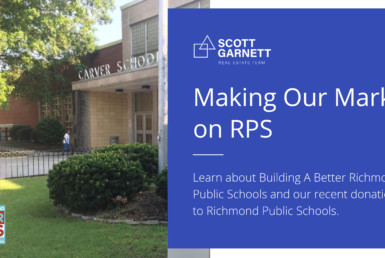What to Expect When You’re Inspecting

When looking at a home to buy, typically buyers walk around and try to imagine themselves living in the space.
Does it have the right layout? Are there enough bedrooms? Do we like the kitchen? Do we like the neighborhood?
But, the down and dirty parts don’t really get looked at until inspection time. The inspector will crawl under your house to see what might be lurking under there. And he/she will poke around in all the recesses of your attic. The roof will get a once-over. These are the things not readily seen upon first and second showings. But, it’s crucial that they be inspected.
I tell all my home-buyers, “Go to your inspection!” There is no better way to learn about the house you’re about to purchase than shadowing a home inspector for an hour or two. Ask your Realtor and your friends whom they recommend. If you’re buying an older home, be sure to hire an inspector who knows about old properties and vice versa for new construction. Set aside a few hours for your inspection.
A good home inspector knows a LOT about construction, electrical systems and breaker panels, plumbing, appliances, fire safety, roofing, lots and drainage issues, heating and cooling systems and all the other pieces and parts that make up your new home. The major systems need to be in good working condition. If not, the inspector will tell you whether something is a safety hazard or just a minor glitch.
Be sure to ask for an estimate for the work before you hire an inspector. They usually run between $300-$500 depending on the size and scope of the house. Typically, the interior and exterior surfaces and construction materials are part of the inspection along with all the major ‘systems’ of the home. Add-on services may include testing for the presence of lead, radon or mold, and they will usually cost a bit more.
Not only is the inspection the time to find out what’s wrong with your new home, but inspectors are good at pointing out some of the finer points, as well. For example, during my own home inspection, the inspector’s assistant introduced me to my whole-house generator…something I’d never seen or used. He explained how to turn it on, how to test it and surprised me by telling me how much it costs to install and connect one. I felt a lot better about the price I’d paid for my house! He also taught me how to light the pilot light on my gas fireplace, for which I’m eternally grateful.
If you’re buying a historic property, be sure to take parts of the inspection report with a grain of salt. Many items that might be a code violation today, were not so at the time your turn-of-the-century home was built. These items can be updated at a later date, but should not necessarily be part of the negotiation process. And, remember that just because something in the house is old and outdated, doesn’t mean that it doesn’t work. I’ve seen many home-buyers get bogged down in negotiations over minor imperfections that just come with buying an older home. You’ve got to decide what you can and can’t live with when this happens. Be sure to focus on the major systems and structural elements of the house.
>Most importantly, don’t be afraid to ask questions!
Your inspector is there to represent your best interests and he/she should be more than willing to look into anything that concerns you and to explain things you might not understand. These are the things to expect when you’re inspecting.



